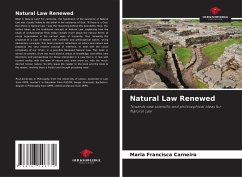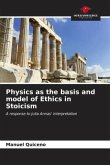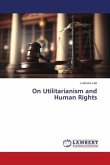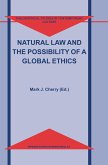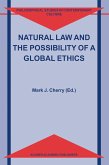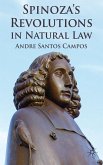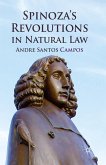What is Natural Law? For centuries, the hypothesis of the existence of Natural Law was closely linked to the belief in the existence of God. "If there is a God, then there is Natural Law," was the reasoning behind this possibility. Here, the author takes up the traditional concept of Natural Law, explaining how the study of archaeological finds today reveals much about the natural forms of social organization in the earliest ages of humanity, thus renewing the proposal of a Law of Nature with scientific and philosophical bases. Using elementary concepts, this book presents reflections on ethics and nature and proposes the very modern concept of interface, to deal with the social complexity of our times, in a possible Renewed Natural Law. This book is aimed at scholars from the most diverse areas of knowledge, and offers new directions and perspectives for those interested in a Law that is in line with current reality, with the laws of nature and, even more so, with the much-decried human nature. So let's leave the reader to the book and the book to the reader, wishing them a fruitful and thought-provoking read.
Bitte wählen Sie Ihr Anliegen aus.
Rechnungen
Retourenschein anfordern
Bestellstatus
Storno

